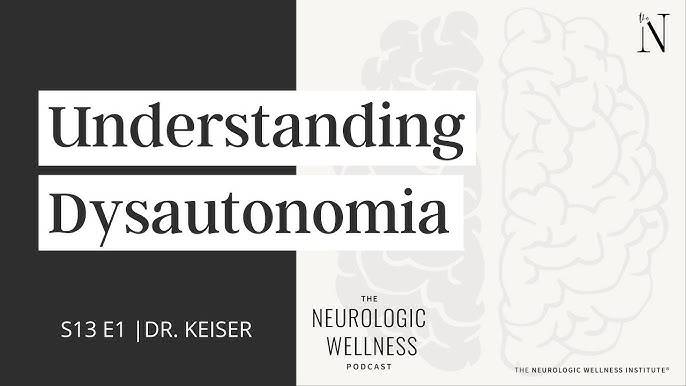Dysautonomia is a condition where the autonomic nervous system (ANS) doesn't work as it should. The ANS controls automatic body functions like heart rate, blood pressure, digestion, and temperature regulation. When it malfunctions, it can lead to various symptoms that affect daily life.
Symptoms of Dysautonomia
The symptoms can vary widely among individuals, but common ones include:
- Dizziness and Fainting: Feeling lightheaded or fainting, especially when standing up.
- Rapid Heart Rate: Experiencing a fast heartbeat, even while at rest.
- Blood Pressure Issues: Having blood pressure that's too high or too low.
- Digestive Problems: Facing challenges like bloating, constipation, or diarrhea.
- Sweating Abnormalities: Sweating too much or not enough.
- Fatigue: Feeling extremely tired without a clear reason.
- Difficulty Breathing: Experiencing shortness of breath or trouble breathing normally.
Triggers of Dysautonomia
Certain factors can make dysautonomia symptoms worse:
- Stress: Emotional or physical stress can intensify symptoms.
- Dehydration: Not drinking enough water can lead to low blood pressure and dizziness.
- Heat Exposure: Being in hot environments may cause excessive sweating and fatigue.
- Alcohol Consumption: Drinking alcohol can affect blood pressure and heart rate.
- Certain Medications: Some drugs might interfere with the autonomic nervous system.
Treatments for Dysautonomia
While there's no cure for dysautonomia, treatments focus on managing symptoms:
Lifestyle Changes:
- Hydration: Drinking plenty of water and increasing salt intake can help maintain blood pressure.
- Diet: Eating small, frequent meals to prevent blood pressure drops after eating.
- Physical Activity: Engaging in regular, gentle exercise to improve circulation and overall health.
Medications:
- Blood Pressure Medications: To manage high or low blood pressure.
- Heart Rate Regulators: To control rapid heartbeat.
- Digestive Aids: To address gastrointestinal issues.
Compression Garments: Wearing compression stockings can help improve blood flow and reduce dizziness.
Therapies:
- Physical Therapy: To build strength and improve mobility.
- Counseling: To manage stress and develop coping strategies.
It's essential for individuals with dysautonomia to work closely with healthcare professionals to develop a personalized treatment plan. Regular monitoring and adjustments can help manage symptoms effectively, improving quality of life.
Understanding dysautonomia is the first step toward managing it. By recognizing symptoms, identifying triggers, and following appropriate treatments, individuals can lead fulfilling lives despite the challenges posed by this condition.
Please follow for more


